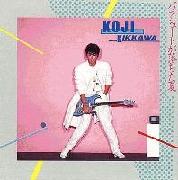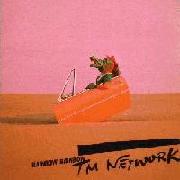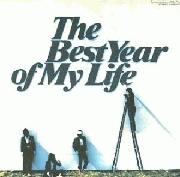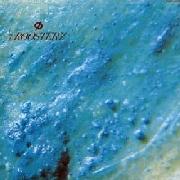|
User
Reviews 85
Approval 97%
Soundoffs 189
News Articles 14
Band Edits + Tags 6,645
Album Edits 12,097
Album Ratings 15726
Objectivity 73%
Last Active 07-27-22 7:57 am
Joined 12-20-10
Review Comments 854
| Discovolante's Best of 1984 (Japan Edition)
From the beginning of the year to the end, via the Sputnik release calendar. | | 1 |  | Taco (JPN)
Second
The second full length album of the wildly ahead of its time project Taco, effectively titled "Second", the Taco project ends up digging even deeper into its wide array of influences, creating another fantastically disorienting experience in the process. | | 2 |  | MetroFarce
Pipi Zazou
New wave psychotics MetroFarce followed up their amazing sophomoric effort "Barizanveux" with the even more amazing "Pipi Zazou". Sounding like a bastard child of early DEVO, XTC, Split Enz and Big Country, "Pipi Zazou" is MetroFarce's best effort by far, and one of the best pieces of 1980s Japanese art pop. | | 3 |  | X-Ray
Dentou Hakai ~Tradition Breaker~
1984 was X-Ray's most prolific year as they released two albums that year: the subpar "Shout" and the incredible "Dentou Hakai ~Tradition Breaker~". In fact, "Dentou Hakai" would end up being X-Ray's brightest moment, with it specifically containing their signature song "Question", with the song ending up garnering strong cult recognition throughout the 2000s and 2010s amongst metal fans online. | | 4 |  | Laughin' Nose
Pussy For Sale
Long running punk band Laughin' Nose came out swinging with their 1984 debut "Pussy for Sale", with the album garnering an immediate reaction in the Japanese punk underground for its rowdy sound, killer melodies and off-color lyrics which took major influence from the punk scene in the West. An album that truly changed the landscape of Japanese punk. | | 5 |  | Sheena and the Rokkets
New Hippies
Sheena and the Rokkets made their return to releasing albums in 1984 with the release of "New Hippies", an album that showed a strong sense of reinvention. Instead of following down the quirky new wave path they laid out with their brilliant 1980 album "Channel Good", Sheena and the Rokkets decided to go the other route with "New Hippies", refocusing more on a sense of pure rock than their previous electropop style. It sounds similar to their first album, only expanded upon perfectly to make "New Hippies" one of their best albums, and a triumphant return after a three year hiatus. | | 6 |  | Tulip
I Dream
Music legends Tulip would make their return with "I Dream", their best effort in 7 years, with the time largely consisting of largely uninspired material. With "I Dream", however, the veterans reinvent their sound for the 1980s, mixing their swoony soft sound with light electropop tinges. A hell of a comeback, even though it would prove to be temporary. | | 7 |  | Koji Kikkawa
Parachute ga Ochita Natsu
Starting out as an Olympic swimmer, Koji Kikkawa would make the very bold and risky move to become a pop singer in 1984 at the young age of 19. It would end up being a gamble that paid off very well, as that year alone he released two albums, with the better in my opinion being his debut "Parachute ga Ochita Natsu". His bold and assertive vocals collide perfectly with the admittedly aged music, which makes for an 80s new wave classic. | | 8 |  | TM Network
Rainbow Rainbow
Although making hardly any noise upon its release, TM Network's debut "Rainbow Rainbow" would mark the ambitious beginnings of one of the most dominant Japanese bands of the 1980s and early 1990s, which would start in full swing by 1987. The sound of "Rainbow Rainbow" is noticeably different than their later material, and it is sort of like a bizarre hybrid of Alfee-esqued prog-pop and synthpop new wave. A damn good and extremely unique first effort. | | 9 |  | T-Square
Adventures
Jazz fusion icons T-Square hit another homerun with their fourth EP "Adventures", which was their first EP release in five years. It also ended up being their most commercially successful release to date, reaching number 8 on the Oricon charts. It has some more excellent silky-smooth fusion that T-Square were already known for, with one of their best tracks, "Night Dreamer", being a particular standout on the EP. | | 10 |  | Mariya Takeuchi
Variety
Everybody knows "Plastic Love", which, don't get me wrong, is a great song. But "Variety" absolutely deserves closer attention with the other stellar tracks on it. Containing such killer tracks as the dreamy ballad "Honki de Only You (Let's Get Married)", the sweet quiet storm rhythms of "Broken Heart", the evanescent light breeze of a track "Todokanu Omoi", as well as of course "Plastic Love", there's very little room to debate as to why "Variety" is not just one of Mariya Takeuchi's best efforts, but also one of the most solid Japanese pop albums of the 80s. | | 11 |  | Jun Togawa
Tamahime-sama
The arthouse nature of Jun Togawa made her an unlikely pop figure in 80s Japanese music, and an even more unlikely artist of interest among overseas music enthusiasts. Her 1984 solo debut album "Tamahime-sama" is a funhouse acid dream with tons of macabre and controversial lyrical topic matter abound which would become her signature trait. A definite major highlight in her discography, and one of the most challenging albums from the 1980s mainstream. | | 12 |  | Off Course
The Best Year of My Life
After 15 years, music icons Off Course released their magum opus critically, as well as one of their most commercially successful albums, fittingly titled "The Best Year of My Life". Containing one of their biggest songs in 5 years, "Kimi ga, Uso wo, Tsuita", it served as a strong comeback after a two year break (which is considered a long time in Japanese music). It manages to blend all of their styles they acquired over the years into one relatively short nine-track album. A brilliant piece that shows just how incredible of a band Off Course were. | | 13 |  | The Alfee
The Renaissance
Already an 11 year old band at this point and 7 albums deep, The Alfee had a habit of coming close to creating a classic, but always managed to fumble the opportunity. That was until their 8th album, "The Renaissance", released in the summer of 1984. Becoming their first album to break the Oricon top 3 at number 2, it features some of their most beloved tracks, including the timeless prog-pop single "Starship -Hikari wo Motomete-". | | 14 |  | Negasphere
Castle in the Sky
Negasphere were one of Japan's earliest prog bands, originally forming in 1976, but it took them 8 years to release their first album. That album, "Castle in the Sky", was an absolute flop in the underground Japanese music scene, and it would take the album nearly 3 decades to gain the appreciation it badly deserved. Mixing a (then) current, very 80s prog sound with that of Medieval origins, along with iron-tight musicianship and the one-of-a-kind wails of frontman and guitarist Hiroyoshi Majima, the end result is a prog rock album of which you've probably never heard anything like before. | | 15 |  | The Roosters
Φ PHY
While being nothing more than a cult band during their initial run throughout the 1970s and 1980s, The Roosters would later become hailed as one of the most ingenious bands of the 1980s. With their 1984 effort "Φ PHY", The Roosters, after releasing four albums previously, finally hit their stride and release an aural delight of remarkable value. "Φ PHY" takes the goth influence that the band were playing with for the prior two releases and dives deep inside, with the end result being one of the most breathtaking and personable albums perhaps in all of Japanese music, beyond the decade. | |
Drifter
02.28.22 | most underappreciated user continues to go underappreciated. i know nothing about most of your lists but im always impressed and wish i put as much effort into this site as you do. im too lazy to actually commit to anything | Mort.
02.28.22 | yeah we should cherish discos lists | GmemberKills
02.28.22 | sweet! i was wondering if this series was gonna be continued.
really wanna check 1 & 10
few of my favs are
Ichiko Hasimoto - Beauty (avante garde pop) ,
Anri - Coool (funk city-pop),
Naoko Kawai - Daydream coast (essential western influenced idol pop-rock)
momoko kikuchi - ocean side (city pop/idol)
casio pea - mint jams | discovolante
02.28.22 | Thanks a lot, guys! Really appreciate it! | Uzumaki
03.01.22 | Love these lists |
|
